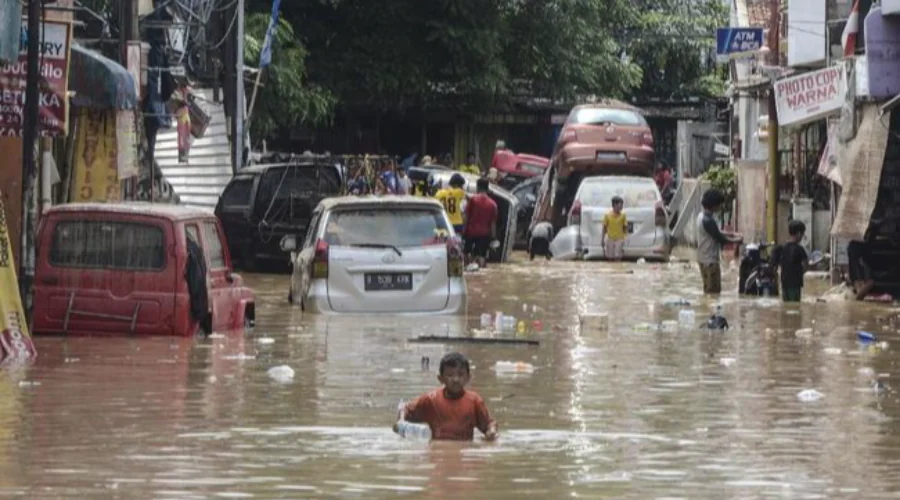
- 11 Jan
- 2023
Ilustrasi gambar banjir (ANTARA FOTO)
Floods Occur in a Number of Places, UM Surabaya Lecturer: Beware of Diseases Transmitted Through Water
Lately, rainfall has increased in several regions in Indonesia. The high intensity of rainfall with a long duration of time is the main factor causing the occurrence of floods.
The culture of living in a community that is not clean and healthy, and environmental sanitation that is still inadequate means that overflow water that occurs due to flooding is usually mixed with garbage, animal waste and human waste. This is what then becomes the cause of many diseases that can be caused when the rainy season arrives.
Vella Rohmayani, a UM Surabaya Medical Laboratory Technology (TLM) lecturer, said that the flood disaster has increased the number of breeding grounds for viruses, bacteria and various parasites that cause disease. This parasite acts as a vector for disease transmission.
“This disaster can cause contamination in the provision of access to clean water. Environmental sanitation conditions and access to clean water supply certainly greatly affect whether there is a risk of infection from disease transmission from various infectious agents," said Vella Wednesday (11/01/2023).
Vella said, diarrhea is a disease that is prone to attack during floods. Flood conditions create a lot of stagnant water everywhere, this makes it difficult to get access to clean water, both for cooking, eating, drinking, bathing and for other purposes. So it is very susceptible to contamination of food and drink.
“Typhoid fever is also prone to occur due to water pollution. A person can get this disease if exposed to water contaminated with Salmonella typhi bacteria," he added.
Apart from diarrhea and typhoid fever, there are several other diseases that are prone to attack during the rainy season, namely dengue, malaria, dysentery and cholera.
The disease can be transmitted through intermediaries of insects that act as disease vectors, such as mosquitoes, cockroaches and flies. Given the flood conditions also create more and more insect breeding places.










(0) Comments